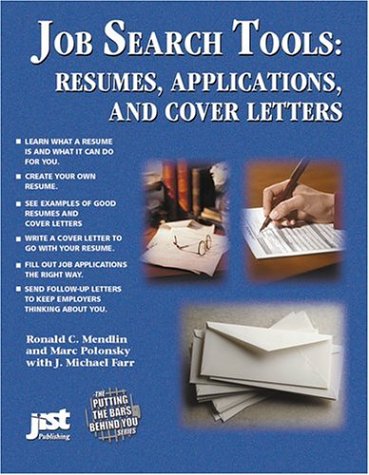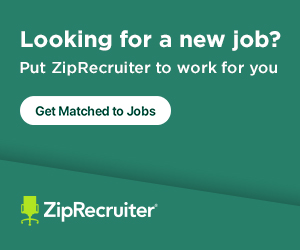- Key Takeaways
- Cover Letters:
- Thank You Notes:
- The Rest of Your Lists:
- Your Network (list):
- Recruiter List:
- Job
Search Boards: - References:
- Organizing Your Application Materials
- Tracking Your Job Applications
- Managing Time Effectively
- Preparing for Virtual Interviews
- Following Up with Confidence
- Staying Motivated During the Process
- Next Steps
- Final Words
We may earn a commission if you click on a product link and make a purchase at no additional cost to you. For more information, please see our disclosure policy.
Last updated: October 28, 2025
Key Takeaways
- Cover Letters Still Matter: A compelling
cover letter can distinguish you from other candidates and increase the chancesyour resume will be read. - Thank-You Notes Show Initiative: Sending personalized thank-you notes demonstrates your interest and helps build rapport with interviewers.
- Build a Strategic Network: Expanding and maintaining a professional network increases access to job opportunities through referrals and industry connections.
- Use Recruiters Wisely: Partnering with a few industry-specific recruiters can enhance your
search without overwhelming your efforts. - Stay Organized with Lists: Keeping detailed lists of contacts, references, and platforms ensures a focused, efficient, and trackable job search process.
Even with the best intentions, launching your
In Lesson #1 – Planning for
Cover Letters:
Rediscover the crucial role of the
In today’s competitive job market marked by high unemployment and limited vacancies,
Shows readers how, why, and when to use these essential paper job search tools. Includes instruction on how to complete applications truthfully without screening yourself out of consideration
Thank You Notes:
While it may seem trivial to some, Thank You notes or emails hold great significance in the
The benefits of this simple act are twofold. Primarily, it provides an opportunity to express your gratitude to the interviewer(s) for their time and consideration. More importantly, it showcases your interest in the role, reaffirms your attentiveness during the discussion, and emphasizes the perfect alignment between the job’s requirements and your capabilities.
While a thank-you note template might serve as a helpful starting point, each message should be personalized. It should reflect the individual you’re addressing, the topics discussed during the interview, the specific job requirements, and your qualifications.
Sending a powerful thank you letter after an interview can help put you ahead other candidates interviewing for the job so you get the coveted offer. Receive step-by-step instructions on how to write custom thank you letters for every interview.
The Rest of Your Lists:
The remaining items on your list form the backbone of your
Your Network (list):
Networking holds a paramount position in your job hunt toolkit, second only to your resume. It empowers you to build meaningful connections with professionals across various companies and locations within your industry. The broader
Your Network action plans should look something like this:
- Step 1 – Review and update your profile on
your Network (LinkedIn should be one of your primary network sites). - Step 2 – Review
your network . Add people you know who can help with yoursearch and reconnect with those already inyour network . - Step 3 – Create a list of your contacts who are employed at companies where you aspire to work, those who have influential connections that could open doors for you, or seasoned professionals capable of providing invaluable career advice and
job search guidance.
This book shatters stereotypes about people who dislike networking. They’re not shy or misanthropic. Rather, they tend to be reflective—they think before they talk.
Recruiter List:
Most recruiters maintain trusted relationships with
Job Search Boards:
Tread carefully here, it is so easy to get caught up in spending 100% of your job Linkedin’s
Never miss an opportunity. On ZipRecruiter, top companies reach out to you.
There's no need to look anywhere else. With over 9 Million jobs, ZipRecruiter is the only site you'll ever need to find your next job.
References:
Creating a list of references should be a straightforward task. While it may seem like a later-stage requirement, some recruiters and HR personnel request this information upfront. Ensure that all your references, typically about five, are informed and willing to give positive testimonials about you – this is of utmost importance.
Organizing Your Application Materials
A successful
Tracking Your Job Applications
Without a structured way to track where you’ve applied, it’s easy to lose sight of deadlines and follow-ups. A
Get 10X more Job Interviews with JobCopilot. 87% of JobCopilot users report more interview invitations within 2 weeks. Automatically apply to jobs from 50,000+ companies worldwide
Managing Time Effectively
Job searching is time-intensive, and without discipline, it can feel overwhelming. Structuring your day around your job search helps maintain
- Set Daily Goals: Establish realistic daily targets like applying to three jobs or sending five networking messages.
- Use Time Blocks: Allocate set hours for applications, interviews, and follow-ups to stay organized.
- Prioritize High-Value Tasks: Focus on actions that yield the most return, such as direct referrals and tailored applications.
- Build in Breaks: Prevent burnout with scheduled breaks to recharge and maintain motivation.
Preparing for Virtual Interviews
As
This book is all about how best to nail the online virtual interview for jobs. On perusing the book, you will be knowing how to prepare for online interview and how to deliver, for in the end, employer would like to hire you.
Following Up with Confidence
Following up after submitting applications or completing interviews shows initiative and enthusiasm. Many candidates hesitate, fearing they’ll appear pushy, but thoughtful follow-ups can help you stand out. Keep messages professional and brief, reaffirming your interest and referencing key points from the interaction. Timing is critical: wait at least two to three business days before reaching out after the interview.
- Email Promptly: Send a thank-you
email within 24 hours of an interview. - Keep It Specific: Mention something discussed during the meeting to personalize your message.
- Restate Your Interest: Reaffirm your enthusiasm for the role and how your
skills align with its requirements. - Respect Boundaries: Avoid excessive follow-ups; one or two polite check-ins are sufficient.
Staying Motivated During the Process
Job searching can be emotionally draining, especially after multiple rejections or slow responses. Maintaining a positive mindset is essential for long-term success. Celebrate small wins like securing an informational interview or improving
- Track Progress: Record accomplishments to see how far you’ve come, even if you haven’t landed a job yet.
- Join Support Groups: Connect with others going through the same experience for shared motivation.
- Focus on Growth: Utilize this time to acquire new
skills or certifications that align with your goals. - Avoid Isolation: Schedule regular check-ins with friends or mentors to stay grounded and energized.
You’re over the age of 50 and intellectually or intuitively you know your age could be a factor in your job search.
Next Steps
- Refine Your
Cover Letter Strategy: Customize each letter to the job description, highlighting your unique fit and aligning with the company’s mission. - Create a Thank-You Note Template: Draft a reusable structure that you can personalize quickly after interviews to leave a lasting impression.
- Update and Expand
Your Network : Reconnect with past contacts and actively engage on LinkedIn to increase visibility and job leads. - Curate a Recruiter Contact List: Identify 3–5 recruiters who specialize in your industry and initiate a professional outreach message to each.
- Organize Your
Search Documents: Keep a centralized folder ofyour resume versions, cover letters, references, and application trackers for consistent follow-up.
Final Words
A strategic
Everything You Need to Know to Get Back to Work After a Layoff
Mark Fiebert is a former finance executive who hired and managed dozens of professionals during his 30-plus-year career. He now shares expert job search, resume, and career advice on CareerAlley.com.










